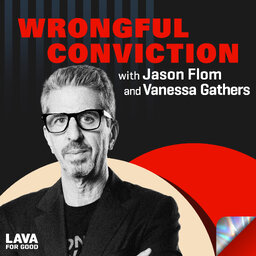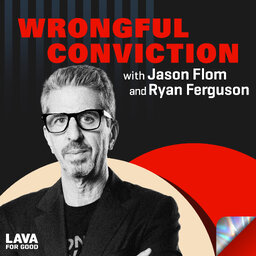#213 Jason Flom with Joe Bryan
Joe Bryan was a high school principal, and his wife Mickey Bryan was a 4th-grade teacher in the small town of Clifton, TX. On Tuesday, October 15th, 1985, Mickey did not show up for work. Her body was discovered later that day in her bedroom. Joe was 120 miles away in Austin at a conference at that time. Prosecutors came up with a theory that Joe drove back to Clifton, killed his wife, and returned to Austin, using the conference as an alibi. He was convicted with "bloodstain analysis" which was later exposed to be wholly unreliable.
For more on the junk science of bloodstain analysis check out Wrongful Conviction: Junk Science - Bloodstain Pattern Evidence with host Josh Dubin, released on August 10, 2020. https://www.wrongfulconvictionpodcast.com/podcast/s11e14-wrongful-conviction-junk-science-bloodstain-pattern-evidence
Learn more and get involved at:
https://innocencetexas.org/
https://www.propublica.org/article/texas-forensic-science-commission-blood-spatter-evidence-testimony-murder-case-joe-bryan
https://www.wrongfulconvictionpodcast.com/with-jason-flom
Wrongful Conviction is a production of Lava for Good™ Podcasts in association with Signal Co. No1.
We have worked hard to ensure that all facts reported in this show are accurate. The views and opinions expressed by the individuals featured in this show are their own and do not necessarily reflect those of Lava for Good.
In 1 playlist(s)
Wrongful Conviction
Hosted by celebrated criminal justice reform advocate and founding board member of the Innocence Pro…Social links
Follow podcast
Recent clips

#560 Jason Flom with Vanessa Gathers
50:04

#559 Jason Flom with Ryan Ferguson
51:48

Introducing - Crying Wolf
02:31
 Wrongful Conviction
Wrongful Conviction